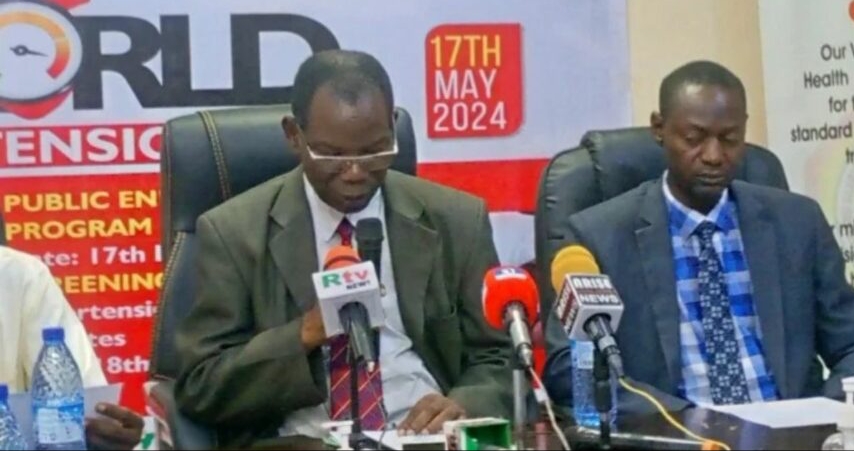
Nigerian Hypertension Society (NHS)
One in three Nigerian adults hypertensive, says Hypertension Society
The Nigerian Hypertension Society (NHS) has called for increased awareness, prevention, early detection, and treatment of hypertension, revealing that one in every three adults in Nigeria is hypertensive.
The NHS made this call in a press statement signed by its President, Simeon Isezuo, in commemoration of World Hypertension Day on May 17.
World Hypertension Day, observed annually, aims to raise awareness and promote the prevention, detection, and control of hypertension, a condition where blood pressure in the blood vessels is too high (140/90 mmHg or higher).
Isezuo highlighted the growing concern over the rising cost of medicines for treating hypertension, describing it as a major issue.
He stated that hypertension often goes unnoticed due to the absence of symptoms until significant damage occurs, making early detection crucial.
“The aim is to raise awareness and promote the prevention, early detection, and treatment of hypertension.
“This is particularly significant in Nigeria where one of every three adults has hypertension. Hypertension has no symptoms until serious damage has been done to the body,” Isezuo said.
He noted that many Nigerians are unaware of their hypertensive status, and even among those who are aware, few are on effective treatment.
”Hypertension is the leading cause of stroke, heart failure, chronic kidney disease, and heart attacks, often affecting people during their economically productive years,” he added.
The President of the NHS linked the rise in hypertension to lifestyle changes, particularly those influenced by Western civilization.
He pointed out that obesity, sedentary lifestyles, and diets high in salt, fats, and sugar are the main contributors to the condition’s increasing prevalence.
To combat hypertension, Isezuo recommended a return to traditional African diets and physically active lifestyles.
He suggested measures such as taxing unhealthy foods, enforcing clear labelling of food contents, and encouraging physical activities like trekking, gardening, and traditional dances.
“Where prevention of hypertension is not possible or feasible, the emphasis should be on early detection.
“This requires regular blood pressure checks which is not possible without sustained public enlightenment to improve awareness about hypertension,” he noted.
Isezuo urged health workers to utilize every opportunity to check patients’ blood pressure and encouraged home blood pressure monitoring.
He also called on the health industry to make blood pressure monitoring equipment more affordable and user-friendly.
Recognizing the financial burden of hypertension treatment, he called on the government to reduce medicine prices and support local manufacturers.
He also encouraged the private sector, philanthropists, and religious organizations to assist the less privileged in affording treatment.
Isezuo further advocated for strengthening the traditional African family system in managing hypertension, encouraging families to share information, supporting members in taking their medicines, and regularly checking blood pressure within the family unit.
